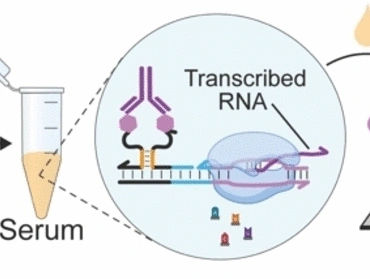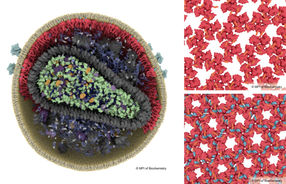New blood test identifies risk “Sudden Cardiac Death”
UAntwerp (University of Antwerp), UZA (Antwerp University Hospital), and Multiplicom NV together developed a blood test to determine the genetic risk of “Sudden Cardiac Death” (SCD). This test, called PED MASTR, is already in use at the center of medical genetics of UZA/UAntwerp and will be launched worldwide from September 2014.
SCD, which affects one in a thousand people, can be reduced with the PED MASTR. Especially young, seemingly healthy individuals are affected by SCD, as indicated by the regular reports of the unexpected death of young athletes during a sports competition or – training.
The heart rhythm abnormalities linked with these deaths are unfortunately difficult to detect, even for cardiologists. Genetic predisposition plays an important role as family members of affected individuals have a 50% risk of inheriting the same genetic predisposition to develop cardiac disease.
Early detection of hereditary heart disease in high-risk families can save lives. With the development of the PED MASTR it has become feasible and fast to fully analyze the high number of genes involved for SCD causing mutations.
Most read news
Organizations

Get the analytics and lab tech industry in your inbox
By submitting this form you agree that LUMITOS AG will send you the newsletter(s) selected above by email. Your data will not be passed on to third parties. Your data will be stored and processed in accordance with our data protection regulations. LUMITOS may contact you by email for the purpose of advertising or market and opinion surveys. You can revoke your consent at any time without giving reasons to LUMITOS AG, Ernst-Augustin-Str. 2, 12489 Berlin, Germany or by e-mail at revoke@lumitos.com with effect for the future. In addition, each email contains a link to unsubscribe from the corresponding newsletter.


























































